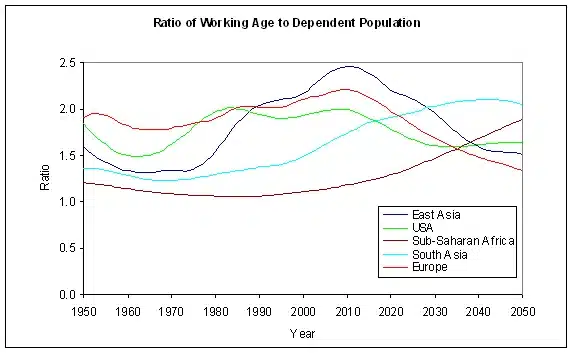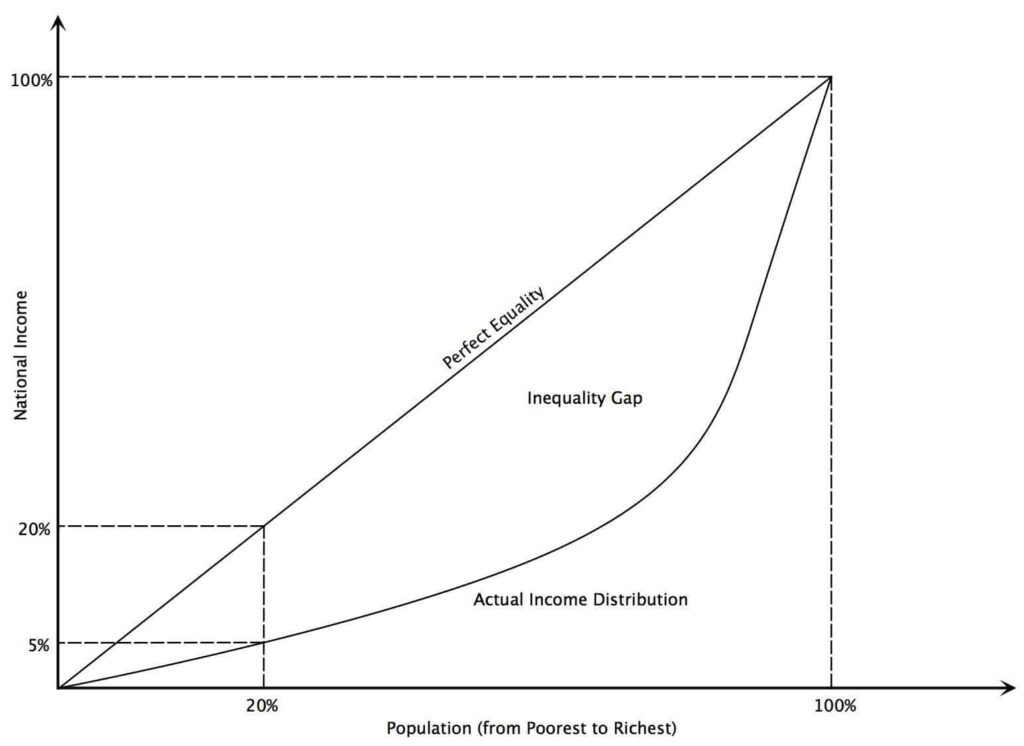The 15th Finance Commission (FC-XV) was constituted on 27th November, 2017, by the President of India under the Article 280 of the constitution.
- It primarily had to make recommendations to the Government of India about the principles determining the distribution of the net proceeds of the central taxes between the union and the states.
- Apart from the vertical and horizontal tax devolution, local government grants, disaster management grant, the Commission was also asked to examine and recommend performance incentives for States in many areas like power sector, adoption of DBT, solid waste management etc.
- The 15th Finance Commission (XVFC)’s ToR was unique and wide ranging in many ways. The Commission was asked to recommend performance incentives for States in many areas like power sector, adoption of DBT, solid waste management etc.
- Another unique ToR was to recommend funding mechanism for defence and internal security.
- The 15th Finance Commission’s Report is organised in four volumes.
- Volume I and II, as in the past, contain the main report and the accompanying annexes.
- Volume III is devoted to the Union Government and examines key departments in greater depth, with the medium-term challenges and the roadmap ahead.
- Volume IV is entirely devoted to the States. We have analysed the finances of each State in great depth and have come up with State-specific considerations to address the key challenges that individual States face.
- In total, main report has 117 core recommendations. Vol-III and IV has numerous suggested reforms for the Union ministries and State governments respectively.
- The final report with recommendations for the period 2021-26 was tabled in Parliament on February 1, 2021.
Members of the 15th Finance Commission
- Chairman Sh N K Singh,
- Shri Ajay Narayan Jha,
- Prof. Anoop Singh,
- Dr. Ashok Lahiri and
- Dr. Ramesh Chand along with
- Secretary to the Commission Shri Arvind Mehta accompanied the Chairman.
Tenure of the 15th Finance Commission
The first report, consisting of recommendations for the financial year 2020-21, was tabled in Parliament in February 2020. The final report with recommendations for the period 2021-26 was tabled in Parliament on February 1, 2021.
Recommendations of 15th Finance Commission
Vertical devolution:
- The 15th Finance Commission (FC-XV) reiterated the opinion of the 14th Finance Commission (FC-XIV) that tax devolution is a more objective form of transfer of resources from centre to the state as compared to other forms of transfers.
- The 14th Finance Commission had recommended the vertical devolution of 42 per cent of the divisible pool. The 15th Finance Commission set aside 1 per cent from this 42 per cent for the special needs of the newly created union territories of Ladakh and Jammu & Kashmir and recommended that 41 per cent of the net proceeds of union taxes (divisible pool) be devolved to the states in the year 2020-21.
- In XVFC’s assessment, gross tax revenues for 5-year period is expected to be 135.2 lakh crore. Out of that, Divisible pool (after deducting cesses and surcharges & cost of collection) is estimated to be 103 lakh crore.
- States’ share at 41 per cent of divisible pool comes to 42.2 lakh crore for 2021-26 period.
- Including total grants of Rs. 10.33 lakh crore (details later) and tax devolution of Rs. 42.2 lakh crore, aggregate transfers to States is estimated to remain at around 50.9 per cent of the divisible pool during 2021-26 period.
- Total 15th Finance Commission transfers (devolution + grants) constitutes about 34 per cent of estimated Gross Revenue Receipts of the Union leaving adequate fiscal space for the Union to meet its resource requirements and spending obligations on national development priorities.
The fund vertically devolved was shared among the states on
- (1) need based criteria (population, area and forest and ecology),
- (2) equity based criteria (Income distance) and
- (3) performance based criteria (demographic performance and tax efforts).
Horizontal Devolution
The criteria and their weights recommended by 15th Finance Commission for horizontal devolution are given below:
| Criteria | Weights (%) |
| Population (as per 2011 census) | 15.0 |
| Area | 15.0 |
| Forest and Ecology | 10.0 |
| Income Distance | 45.0 |
| Demographic Performance | 12.5 |
| Tax Efforts | 2.5 |
- Income distance is the distance of a state’s income from the state with the highest income. A state with lower per capita income will have a higher share to maintain equity among states. In the first report the income of a state was computed as average per capita GSDP during the three-year period between 2015-16 and 2017-18 and for final report it is 2016- 17 and 2018-19.
- The demographic performance has been computed by using the reciprocal of the total fertility rate (TFR) of each state, scaled by the population data of Census 2011. States with a lower fertility ratio have scored higher on this criterion.
- Forest and ecology criterion has been arrived at by calculating the share of the dense forest of each state in the total dense forest of all the states.
- Tax and fiscal efforts criterion has been measured as the ratio of the average per capita own tax revenue and the average per capita state GDP during the three years between 2014- 15 and 2016-17.
Revenue deficit grants:
- Based on uniform norms of assessing revenues and expenditure of the States and the Union, 15th Finance Commission has recommended total revenue deficit grants (RDG) of Rs 2,94,514 crore over the award period for seventeen States.
Local Governments:
- The total size of the grant to local governments should be Rs. 4,36,361 crore for the period 2021-26.
- Of these total grants, Rs. 8,000 crore is performance-based grants for incubation of new cities and Rs. 450 crore is for shared municipal services. A sum of Rs. 2,36,805 crore is earmarked for rural local bodies, Rs.1,21,055 crore for urban local bodies and Rs. 70,051 crore for health grants through local governments.
- Urban local bodies have been categorised into two groups, based on population, and different norms have been used for flow of grants to each, based on their specific needs and aspirations. Basic grants are proposed only for cities/towns having a population of less than a million. For Million-Plus cities, 100 per cent of the grants are performance-linked through the Million-Plus Cities Challenge Fund (MCF).
Health:
- 15th Finance Commission has recommend that health spending by States should be increased to more than 8 per cent of their budget by 2022.
- Given the inter-State disparity in the availability of medical doctors, it is essential to constitute an All India Medical and Health Service as is envisaged under Section 2A of the All-India Services Act, 1951.
- The total grants-in-aid support to the health sector over the award period works out to Rs. 1,06,606 crore, which is 10.3 per cent of the total grants-in-aid recommended by 15th Finance Commission. The grants for the health sector will be unconditional.
Performance incentives and grants:
- 15th Finance Commission has recommended grants of Rs. 4,800 crore (Rs. 1,200 crore each year) from 2022-23 to 2025-26 for incentivising the States to enhance educational outcomes.
- 15th Finance Commission has recommended Rs. 6,143 crore for online learning and development of professional courses (medical and engineering) in regional languages (matribhasha) for higher education in India.
- 15th Finance Commission has recommended that Rs. 45,000 crore be kept as performance-based incentive for all the States for carrying out agricultural reforms for
- amending their land-related laws on the lines of NITI Aayog’s model law incentive-based grants to States that maintain and augment groundwater stock
- growth in agricultural exports
- production of oilseeds, pulses and wood and wood-based products.
Apart from above, following is the snapshot of grants.
| Grant Components | 2021-26 |
| Revenue Deficit grants | 294514 |
| Local governments grants | 436361 |
| Disaster management grants | 122601 |
| Sector-specific grants | 129987 |
| Sectoral grants for Health | 31755 |
| School Education | 4800 |
| Higher Education | 6143 |
| Implementation of agricultural reforms | 45000 |
| Maintenance of PMGSY roads | 27539 |
| Judiciary | 10425 |
| Statistics | 1175 |
| Aspirational districts and blocks | 3150 |
| State-specific | 49599 |
| Total | 1033062 |
Defence and Internal Security
- Keeping in view the extant strategic requirements for national defence in the global context, 15th Finance Commission has, in its approach, re-calibrated the relative shares of Union and States in gross revenue receipts. This will enable the Union to set aside resources for the special funding mechanism that 15th Finance Commission has proposed.
- The Union Government may constitute in the Public Account of India, a dedicated non-lapsable fund, Modernisation Fund for Defence and Internal Security (MFDIS). The total indicative size of the proposed MFDIS over the period 2021-26 is Rs. 2,38,354 crore.
Disaster Risk Management:
- Mitigation Funds should be set up at both the national and State levels, in line with the provisions of the Disaster Management Act. The Mitigation Fund should be used for those local level and community-based interventions which reduce risks and promote environment-friendly settlements and livelihood practices.
- For SDRMF, 15th Finance Commission has recommended the total corpus of Rs.1,60,153 crore for States for disaster management for the duration of 2021-26, of which the Union’s share is Rs. 1,22,601 crore and States’ share is Rs. 37,552 crore.
- 15th Finance Commission has recommended six earmarked allocations for a total amount of Rs. 11,950 crore for certain priority areas, namely, two under the NDRF (Expansion and Modernisation of Fire Services and Resettlement of Displaced People affected by Erosion) and four under the NDMF (Catalytic Assistance to Twelve Most Drought-prone States, Managing Seismic and Landslide Risks in Ten Hill States, Reducing the Risk of Urban Flooding in Seven Most Populous Cities and Mitigation Measures to Prevent Erosion).
Fiscal consolidation
- Provided range for fiscal deficit and debt path of both the Union and States.
- Additional borrowing room to States based on performance in power sector reforms.
- A threshold amount of annual appropriation should be fixed below which the funding for a centrally sponsored scheme (CSS) may be stopped. Below the stipulated threshold, the administrating department should justify the need for the continuation of the scheme. As the life cycle of ongoing schemes has been made co-terminus with the cycle of Finance Commissions, the third-party evaluation of all CSSs should be completed within a stipulated timeframe. The flow of monitoring information should be regular and should include credible information on output and outcome indicators.
- The High-powered Group can craft the new FRBM framework and oversee its implementation. It is important that the Union and State Governments amend their FRBM Acts, based on the recommendations of the Group, so as to ensure that their legislations are consistent with the fiscal sustainability framework put in place. This High-powered Inter-Governmental Group could also be tasked to oversee the implementation of the 15th Finance Commission’s diverse recommendations.
- State Governments may explore formation of independent public debt management cells which will chart their borrowing programme efficiently.
Source : Pib.
Also refer :









